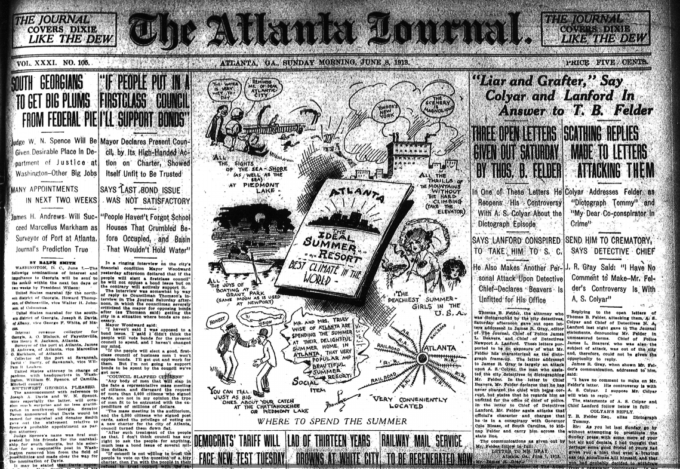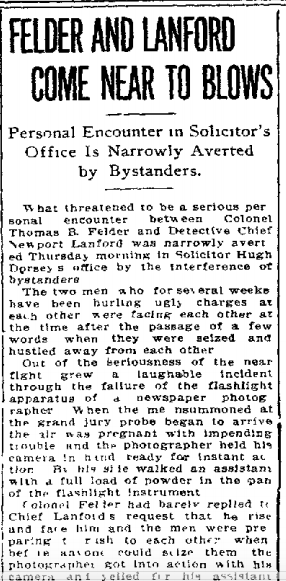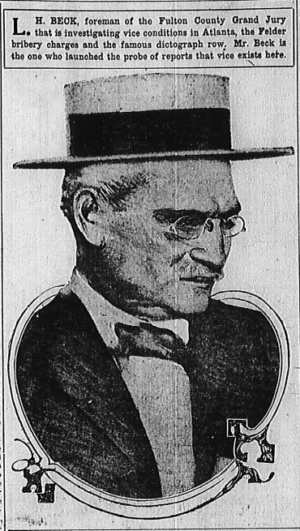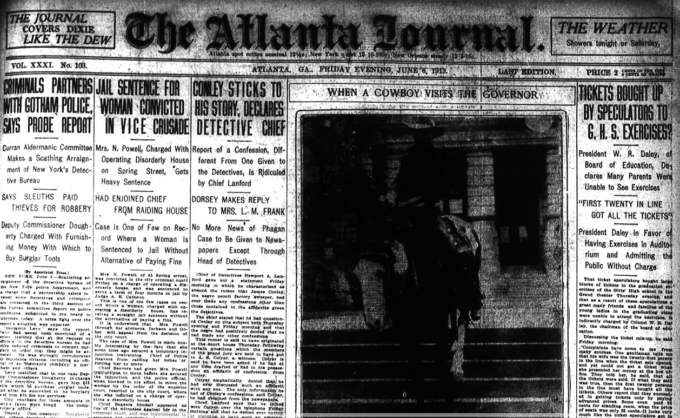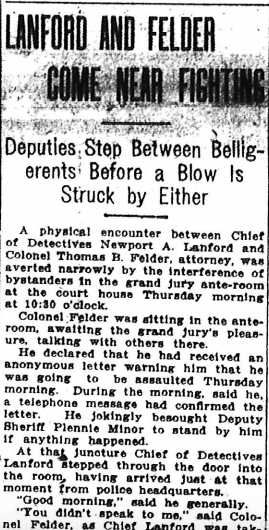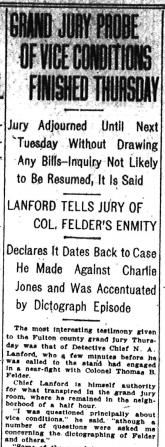 Another in our series of new transcriptions of contemporary articles on the Leo Frank case.
Another in our series of new transcriptions of contemporary articles on the Leo Frank case.
The Atlanta Constitution
June 12, 1913
Investigation of Charges and Counter Charges Will Begin at Early Date and Will Be Exhaustive One.
LANFORD SAYS GENTRY WILL DENY AFFIDAVIT
Affidavit Is Made Declaring Dictagraph Instrument Was Secured by Chief Lanford For Use in Phagan Case.
Following close on the heels of the publication of the George M. Gentry affidavit, in which the young stenographer states that his typewritten report of the dictagraph conversation was padded, and says that he left town after he had discovered that he had fallen in with a “crowd of crooks,” comes the assurance that the grand jury will at once make a searching probe of the detective department in an effort to establish the truth regarding the many charges and counter charges that have been afloat since the dictagraph sensation was sprung.
Members of the grand jury take the position that if the Gentry affidavit is true, it constitutes a stinging indictment of the detective department—an indictment which should not be allowed to stand longer than it will take to uncover the facts.
Records True, Says Lanford.
Chief of Detectives Lanford defends his department and his own personal connection with the sensation with the declaration that the dictagraph reports, as published, were absolutely correct, and that reports to the contrary are not only false, but will be proved untrue.
Impeiled by public sentiment the dictagraph incident created, it is authentically stated that the grand jury probe will be made at a very early date, and will be an exhaustive one.
While contradicted by Gentry’s affidavit and statements from the trio of dictagraph “victims”—Mayor Woodward, Colonel Felder and Charles Jones. G. C. Febuary, secretary to Chief Lanford, stoutly maintas that the dictagraph notes were accurate and that there were no discrepancies whatever in the published copies. Continue Reading →

 Another in
Another in  Another in
Another in 
 Another in
Another in  Another in
Another in 

 Another in
Another in 

